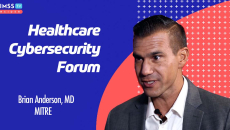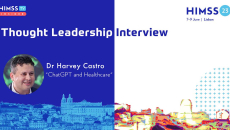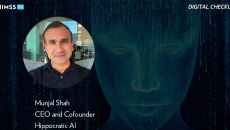AI
Gill Margolin, CTO of Talkspace, relays how machine learning algorithms have been trained in suicide risk and crisis identification and how the company measures its effectiveness in strengthening the patient/therapist relationship.
Dr. Aalpen Patel, chair of radiology and medical director of AI at Geisinger, explains when to use AI in clinical and administrative care and how Geisinger employs the tech for population health using preventative screening prediction models.
Dr. Benoit Desjardins, professor at the University of Pennsylvania Medical Center, tells where vulnerabilities exist with medical devices, what practices can do to protect patients and patient information and how AI can help with cybersecurity.
MITRE's chief digital health physician, Dr. Brian Anderson, discusses the necessity of cross-sector partnerships between developers, health systems and governments regarding emerging technology so innovation can inform regulations and vice-versa.
Anjali Kataria, CEO and cofounder of Mytonomy, highlights her company's digital streaming platform that provides patients with credible education materials while decreasing time burdens on healthcare providers and employing AI technology.
Dr Harvey Castro, author of "ChatGPT and Healthcare," discusses his book on the use of large language models in medicine, the role of physicians in refining future LLMs and worries about physician and patient hallucinations due to LLM results.
Munjal Shah, CEO and cofounder of Hippocratic AI, shares the difference between his company's large language model and Google and ChatGPT's LLMs – and the benefit of partnering with health systems while developing the model to ensure efficacy.
HIMSS23
John Nebergall, chief operating officer of Consensus Cloud Solutions, discusses his experience at HIMSS Global Conference and what he's learned at pre-HIMSS sessions pertaining to interoperability and AI use in a secure environment.
Dr. John B. Halamka, president of Mayo Clinic Platform, discusses AI's "dizzying" evolution, Mayo’s strategy for approaching predictive AI versus generative AI, and its partnership with Google that practices agile development of AI.
Dr. Brian Anderson, MITRE’s chief digital health physician and Coalition for Health AI cofounder, says AI requires regulation. He discusses the blueprint CHI developed for bias-mitigation, transparency, governance and monitoring in AI.









